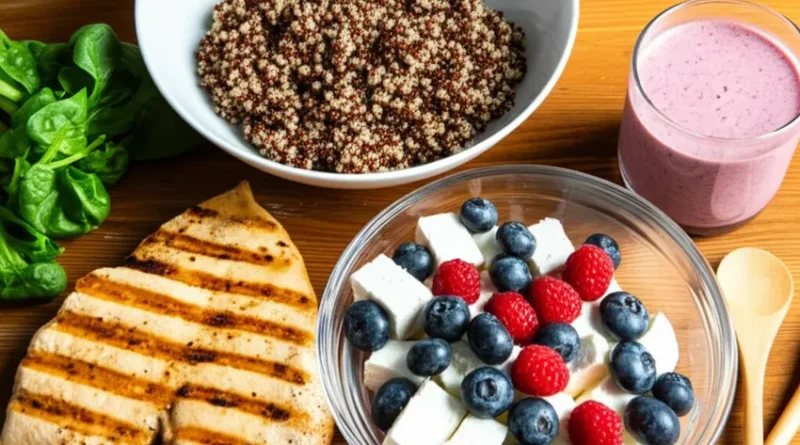The Best Post-Workout Nutrition for Muscle Recovery
When it comes to optimizing your fitness routine, post-workout nutrition is often overlooked. However, what you eat after hitting the gym can significantly influence your recovery and results. This article delves into the essential aspects of post-workout nutrition for muscle recovery, offering insights into what foods to consume and why they matter.
After an intense workout, your body is in a state of flux. Muscle fibers undergo micro-tears during resistance training, and appropriate nutrition helps repair and build them. Moreover, your glycogen stores, which provide energy during exercise, are depleted. Proper post-workout nutrition plays a vital role in replenishing these stores and speeding up recovery.
Key Nutrients for Muscle Recovery
To ensure optimal muscle recovery, your post-workout meal should include the following key nutrients:
- Protein: Protein provides the building blocks for muscle repair. When you workout, your muscles experience stress, and consuming protein helps to stimulate muscle protein synthesis. Aim for about 20-25 grams of high-quality protein within 30 minutes to 2 hours post-exercise. Sources include chicken, turkey, fish, eggs, dairy products, and plant-based options like lentils and quinoa.
- Carbohydrates: After depleting glycogen stores during your workout, replenishing carbs is essential for recovery. Carbohydrates help store energy and promote muscle recovery by triggering the release of insulin, which facilitates nutrient delivery into muscle cells. Aim for a carb-to-protein ratio of about 3:1 or 4:1 in your post-workout meal. Good sources include rice, oats, sweet potatoes, and fruits like bananas and apples.
- Fats: While fats are often avoided immediately post-workout, incorporating healthy fats can support long-term recovery. They provide essential fatty acids that help reduce inflammation and can aid in joint health. Healthy fat sources include avocados, nuts, seeds, and olive oil. Focus on including them in meals consumed later in the day.
- Micronutrients: Vitamins and minerals play an important role in muscle recovery and overall health. Antioxidants, such as vitamins C and E, can help reduce oxidative stress from exercise, while potassium and magnesium help with muscle cramping and function. Incorporate a variety of colorful vegetables and fruits in your post-workout meals to ensure you’re getting a wide range of nutrients.
Timing is Everything
Research has shown that consuming your post-workout nutrition within the first hour after exercising—often referred to as the “anabolic window”—can maximize recovery benefits. However, recent studies suggest that this window might not be as narrow as once believed. It’s still crucial, though, to ensure that you consume your post-workout meal in a timely manner to facilitate recovery.
Sample Post-Workout Meals
Feeling overwhelmed by what you should eat post-workout? Here are a few easy, nutrient-dense meal ideas that combine protein, carbohydrates, and healthy fats:
- Grilled chicken with quinoa and roasted vegetables: This meal provides protein from the chicken, complex carbs from quinoa, and a mix of vitamins and minerals from the veggies.
- Greek yogurt with mixed berries and a sprinkle of granola: Greek yogurt is high in protein, and the berries offer antioxidants, while granola provides carbohydrates.
- Protein smoothie: Blend a scoop of protein powder, a banana, a tablespoon of nut butter, and your choice of leafy greens with almond milk for a quick recovery drink.
- Tuna salad with whole grain bread: Canned tuna is an excellent source of lean protein. Mix with some Greek yogurt rather than mayonnaise to boost the protein content and serve on whole grain toast for added carbs.
Hydration is Key
While food is vital for recovery, hydration cannot be overlooked. Drink plenty of water before, during, and after your workout. Replenishing lost fluids is crucial for optimal muscle function and recovery. Consider electrolyte-rich drinks if you’ve engaged in prolonged or very intense workouts, especially in hot environments.
In conclusion, focusing on a solid post-workout nutrition strategy can significantly enhance your recovery process and help you achieve your fitness goals. By paying attention to the right balance of proteins, carbohydrates, and fats, as well as ensuring hydration, you can support your body in recovery and muscle growth. Start incorporating these strategies into your routine, and you may just notice remarkable improvements in your performance over time.

